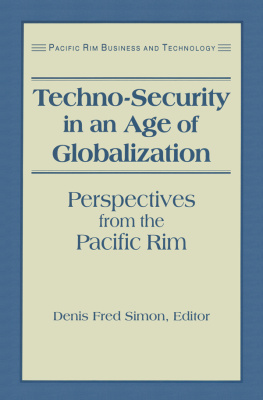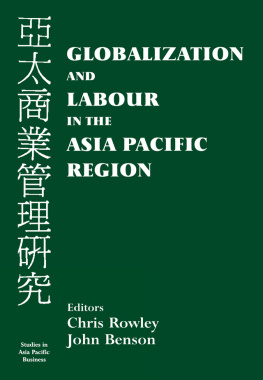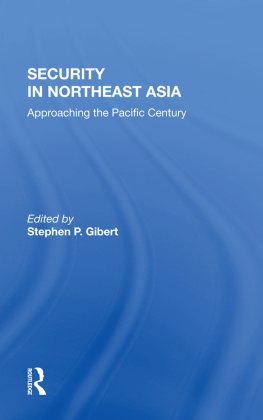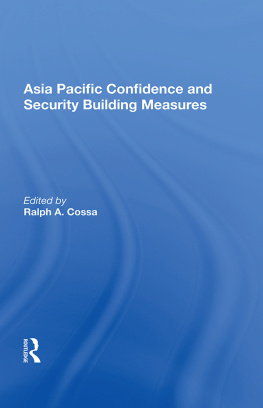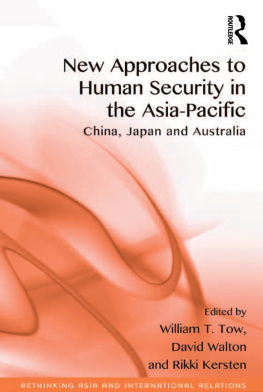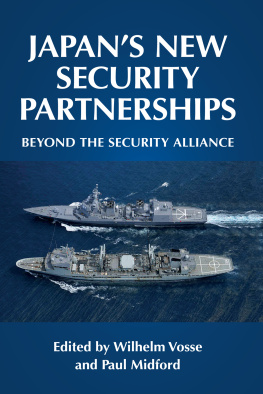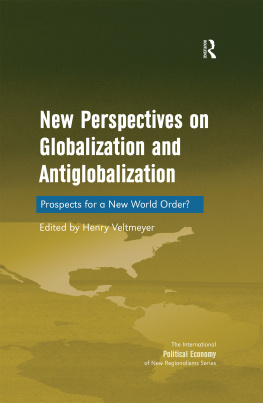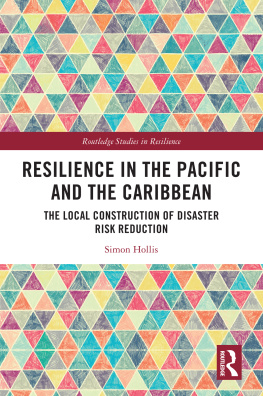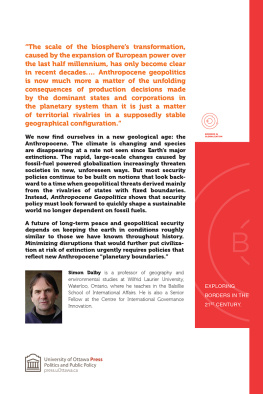Techno-Security in an Age of Globalization
Other Books in This Series
The Emerging Technological Trajectory of the Pacific Rim
Denis Fred Simon, Editor
Developing Technology Managers in the Pacific Rim: Comparative Strategies
Karen Minden and Wong Poh-Kam, Editors
An East Gate Book
First published 1997 by M.E. Sharpe
Published 2015 by Routledge
2 Park Square, Milton Park, Abingdon, Oxon OX14 4RN
711 Third Avenue, New York, NY 10017, USA
Routledge is an imprint of the Taylor & Francis Group, an informa business
Copyright 1997 Taylor & Francis. All rights reserved.
No part of this book may be reprinted or reproduced or utilised in any form or by any electronic, mechanical, or other means, now known or hereafter invented, including photocopying and recording, or in any information storage or retrieval system, without permission in writing from the publishers.
Notices
No responsibility is assumed by the publisher for any injury and/or damage to persons or property as a matter of products liability, negligence or otherwise, or from any use of operation of any methods, products, instructions or ideas contained in the material herein.
Practitioners and researchers must always rely on their own experience and knowledge in evaluating and using any information, methods, compounds, or experiments described herein. In using such information or methods they should be mindful of their own safety and the safety of others, including parties for whom they have a professional responsibility.
Product or corporate names may be trademarks or registered trademarks, and are used only for identification and explanation without intent to infringe.
Library of Congress Cataloging-in-Publication Data
Techno-security in the age of globalization : perspectives from the Pacific Rim / edited by Denis Fred Simon.
p. cm.(Pacific Rim business and technology)
An East gate book.
Includes index
ISBN 1-56324-672-4 (hardcover: alk. paper).ISBN 1-56324-673-2 (pbk.: alk. paper)
1. Technological innovationsEconomic aspectsPacific Area.
2. Pacific AreaEconomic policy.
3. Competition, International.
I. Simon, Denis Fred.
II. Series.
HC681.3.T4T43 1996
338.064099dc20
95-52836
CIP
ISBN 13: 9781563246739 (pbk)
ISBN 13: 9781563246722 (hbk)
To my colleague and friend Andrew B. Evans, who worked with me at the Fletcher School of Law and Diplomacy in multiple capacities for nine years to make that institution a place of high-level scholarly inquiry as well as to imbue it with a deep sense of civility and humanity.
Contents
Denis Fred Simon
Jon Sigurdson
Ronald A. Morse
William A. Fischer
D. Eleanor Westney
Bundo Yamada and Kenji Okumura
Jeffrey C. Shuman and Anthony F. Buono
Farok J. Contractor
Wong Poh-Kam
Ku-Hyun Jung
Denis Fred Simon and Jun Yongwook
Theodore H. Moran and David C. Mowery
Anthony F. Buono
Bentley College
Farok J. Contractor
Rutgers University
William A. Fischer
University of North Carolina at
Chapel Hill; International Institute
for Management Development
in Lausanne
Jun Yongwook
Chung Aug University
Ku-Hyun Jung
Yonsei University
Theodore H. Moran
Georgetown University
Ronald A. Morse
University of Maryland
David C. Mowery
University of California at Berkeley
Kenji Okumura
Fujitsu Research Institute
Jeffrey C. Shuman
Bentley College
Jon Sigurdson
University of Lund
Denis Fred Simon
Andersen Consulting
D. Eleanor Westney
Massachusetts Institute of Technology
Bundo Yamada
Fujitsu Research Institute
Wong Poh-Kam
National University of Singapore
The editor would like to thank all those who participated in the meeting, especially those who took the time and effort to revise their papers and address the numerous questions raised in the complex discussions held during the three-day gathering. Special appreciation also goes to the East-West Center for its financial support as well as to the Pacific Forum for both its administrative and financial support; despite the time changes between Boston and Honolulu, both institutions worked closely and cooperatively with the Center for Technology and International Affairs at the Fletcher School of Law and Diplomacy to make the conference work well from beginning to end.
Bruce Koppel of the East-West Center, in particular, was instrumental in providing substantial intellectual support as well as financial assistance for the meeting; while always seeking parity in terms of mutual benefit, I have found myself to be the absolute beneficiary of any scholarly exchange I have had with Bruce. Funding for the conference was also provided by the U.S. Department of Education as part of the three-year Center for International Business Education and Research (CDBER) grant jointly awarded to the Fletcher School and Bentley College.
Finally, special thanks should go to Karin McMaster, Jessica Daniels, Maria Judge, and Karen Shirer at the Fletcher School who managed to keep track of all the complexities associated with putting together an international conference; without their flexibility and creativeness, the conference could not have been held.
This book has been published under the auspices of the Center for Technology and International Affairs at the Fletcher School of Law and Diplomacy of Tufts University.
The end of the Cold War has brought with it a number of vexing challenges regarding the relationship between international business and national security. Notions such as globally integrated multinational firms, nonphysical space, and nonphysical security are challenging the old models of corporate organizations, national economic policy, and defense of the nation-state. A domain-based definition of the firm is being replaced by the notion that a corporate organization is simply a nexus of rules and contracts, written or implicit, between agents that contribute economic value and draw resources and rewards from it. National governments increasingly lack the capacity, if not the resolve, to regulate the activities of these borderless firms, thus bringing to the surface a growing tension between the older notions of sovereignty and national prerogative and the new requirements of competitiveness and innovation in the world economy.
Some of the issues confronting both corporate executives and government policy makers are merely extensions of older problems that have simply become exacerbated in the postCold War period. After all, during the Cold War, questions about export controls and industrial espionage were commonplace as governments tried to assert their right to control trade and technology flows in the name of national security. And while there were often protestations to the effect that the economic well-being of particular firms was being damaged by the priorities set by government, there was a general consensus that such extraordinary actions and restrictions by government were justified given the potentially damaging consequences to the so-called balance of power that might derive from acquisition by the Soviet-bloc or Communist China of various types of advanced equipment or critical technologies. Many of the trade-offs were clearer during this period. While this still made the role of government problematic from the perspective of many corporations involved in international business and trade, there was a general acceptance of the rules of the game and the need for government to make the hard decisions in the name of the national interest.


